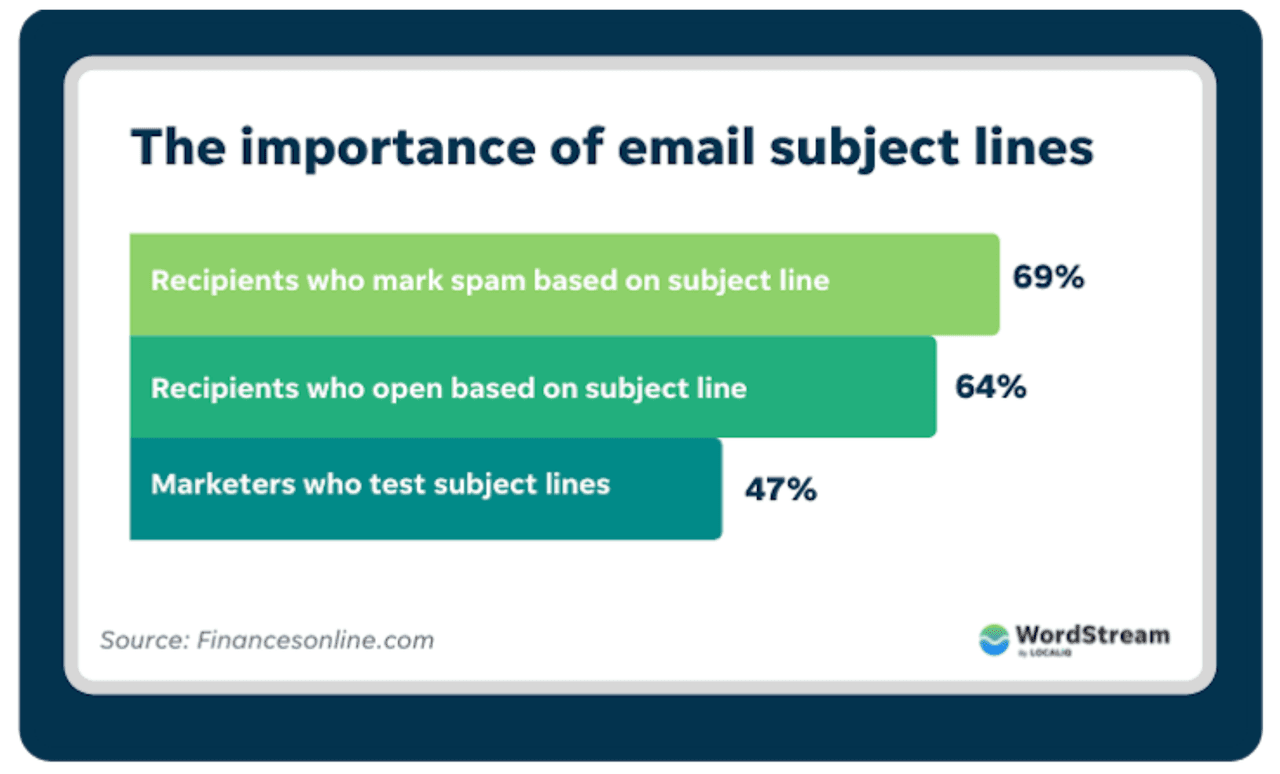15 Better Alternatives to Say “Thank You for Your Understanding”
Casey O'Connor
Contents
- What Does “Thank You for Your Understanding” Mean?
- Is It Correct to Say “Thank You for Your Understanding”?
- Thank You for Your Understanding vs. Thank You for Understanding
- Common Uses for “Thank You For Your Understanding” in Emails
- 15 Alternatives to “Thank You For Your Understanding”
- Tips for Thanking Recipients via Email
The phrase “thank you for your understanding” is commonly used in professional emails.
And although sales reps tend to use it for a wide variety of purposes, it often has a negative connotation to it and can create feelings of disappointment or defensiveness in the recipient (even unintended and/or subconsciously).
It’s important that sales reps choose their words carefully when they communicate with prospects to avoid communicating something unintentionally.
In this article, we’ll go over the best times to use “thank you for your understanding,” when to opt for something else, and a few alternatives for you to try.
Here’s what we’ll cover:
- What Does “Thank You for Your Understanding” Mean?
- Is It Correct to Say “Thank You for Your Understanding”?
- Thank You for Your Understanding vs. Thank You for Understanding
- Common Uses for “Thank You for Your Understanding” in Emails
- 15 Alternatives to “Thank You for Your Understanding”
- Tips for Thanking Recipients via Email
What Does “Thank You for Your Understanding” Mean?
The phrase “thank you for your understanding” is a professional, polite way to acknowledge someone’s compassion, acceptance, patience, and/or intelligence. It’s usually used at the end of an email.
Unfortunately, it’s often used in less-than-ideal circumstances (like when you’re delivering bad news or inconveniencing someone), meaning that even in those instances in which it’s used benevolently or benignly, its meaning is prone to confusion.
Is It Correct to Say “Thank You for Your Understanding”?
It’s neither correct nor incorrect to say “thank you for your understanding.” There are plenty of scenarios in which it would be perfectly appropriate to use the phrase.
Just be mindful that it can have a subconsciously disappointment-inducing or otherwise negative effect on some recipients if you aren’t extremely mindful of the rest of the language within your email message.
We’ll go over scenarios in which the phrase is perfectly appropriate later in this article.
Thank You for Your Understanding vs. Thank You for Understanding
There are a couple of minute, nuanced differences between the phrases “thank you for your understanding” vs. “thank you for understanding.”
The former includes an additional word (“your”) and has a little bit more of a direct, personal implication. It suggests that the email being sent has a direct impact on the recipient and that the sender is personally grateful for the recipient’s understanding.
The slightly less wordy phrase “thank you for understanding” has a similar tone, but it’s a bit more generic and less personal.
Common Uses for “Thank You For Your Understanding” in Emails
The phrase “thank you for your understanding” can be used in a number of different scenarios.
- When you’re letting someone down: “Thank you for your understanding” can be used as an apology of sorts. Salespeople sometimes use the phrase when they’re delivering bad news and want to communicate that they appreciate how gracious the recipient is about it.
- When you’re apologizing for an inconvenience: Sales reps also say “thank you for your understanding” when they have to reschedule a meeting or ask for an extension on something. It’s a polite acknowledgment of the inconvenience.
- When you’re delivering a complaint: Sometimes, you might have to send an email that puts the recipient in an uncomfortable position (like following up on an overdue invoice, for example). “Thank you for your understanding” can help disarm defensiveness and add some gentleness to a complaint or otherwise difficult request.
- When they’re understanding something complex: Sometimes, sales reps use the phrase “thank you for your understanding” in its most straightforward form: to show appreciation when someone intellectually understands a difficult concept.
- When you’re forcing someone to accept something: Sometimes, in the least ideal circumstances, an email writer may use the phrase “thank you for your understanding” to sign off an email in which they’re forcing the recipient to accept something (i.e., “Our working relationship will be terminated effective immediately. Thank you for your understanding.”).
These are all situations in which it’s very appropriate to use the phrase “thank you for your understanding.” It’s worth taking a moment to note just how skewed toward the negative most of these circumstances are; keep this in mind as you determine whether or not a given email warrants the use of the phrase.
15 Alternatives to “Thank You For Your Understanding”
Here are 15 alternatives to use when you’re looking for something other than “thank you for your understanding.”
1. I appreciate your flexibility.
This phrase is a good replacement for “thank you for your understanding” when you’re using it in a scenario in which the recipient has needed to change something (e.g., their schedule, a deadline, etc.) on your behalf.
2. I appreciate you sticking with me.
Sales reps can use this phrase to thank recipients who listened/remained attentive throughout a long presentation or read through an especially dense email thread.
3. Thanks for listening.
Instead of thanking prospects for their understanding, it’s sometimes more effective to thank them for listening. In a world where people have limitless demands for their attention, it can feel good to recognize that someone took the time to hear you out.
4. Thanks for your compassion.
This phrase is a good replacement for “thank you for your understanding” in scenarios in which a mistake, error, or oversight was made. It’s a bit more direct and thanks the recipient for giving you grace.
5. I appreciate your dedication to solving this issue.
Some issues take more time than others to resolve, and sales reps should make an effort to acknowledge those who aren’t afraid to dig in and do the work. This phrase is more concrete than “thank you for your understanding.”
6. I’m grateful for your commitment to working through this issue with me.
Here’s another polite and authentic way to express appreciation for someone’s patience and determination.
7. Thanks for your show of faith.
Some problems are unavoidable. When a prospect sticks with you, even through turbulence, it’s nice to thank them for having faith in your abilities.
8. I value your trust.
This is a nice thing to say when a prospect has opened up an opportunity to meet additional members of their team. It can also go a long way later in the sales process when prospects have committed time and resources to learn more about your solution.
9. Thanks for your teamwork.
This is a good line to use when you and the recipient have been working through a problem that has required collaboration. It shows that you appreciate that you’re in it together.
10. Thank you for your cooperation.
Here’s a simpler and more direct way to say “thank you for your understanding,” especially when the issue requires a specific action from the recipient.
11. You’re the best.
This particular alternative is extremely informal and should only be used with recipients whom you know very well and in the most casual circumstances. That being said, it can be an effective way to offer generous gratitude for something.
12. Thank you for your patience.
If there’s a timing issue, you can always be specific in your gratitude by thanking them for waiting patiently. This is a polite way to acknowledge a delay.
13. I am committed to helping you with this.
You can help combat some of the negativity associated with “thank you for your understanding” by using a phrase that takes a little bit more accountability. This expression shows that you’re going to do what it takes to solve the problem.
14. I owe you one.
Here’s another phrase that’s best reserved for very familiar contacts. If someone has gone out of their way to get you out of a bind, you can acknowledge them for that and promise to keep it in mind the next time they need a favor.
15. Thank you for contacting us.
When someone goes out of their way to contact you — even with a complaint — it’s a show of faith that they trust you can help them with their concern. If they didn’t believe that, they wouldn’t bother reaching out. Thanking them for contacting you is an acknowledgment of their loyalty.
Tip: Looking to spruce up your sales emails? Grab our guide with data-backed findings below.
 The Ultimate Guide to Sales Email (Backed by Data)Looking at the aggregated email habits of more than half a million sales emails, we’ve pulled together the best tips & strategies for improving the outcome of your sales emails.
The Ultimate Guide to Sales Email (Backed by Data)Looking at the aggregated email habits of more than half a million sales emails, we’ve pulled together the best tips & strategies for improving the outcome of your sales emails.
Tips for Thanking Recipients via Email
Here are a few key tips to keep in mind as you write thank-you emails.
Always Send a Thank You…
When in doubt, send a thank you email. Whether you’re thanking them for their time, their patience, or their business, it’s always better to err on the side of gratitude rather than miss an opportunity to connect and share thanks.
…But Don’t Go Overboard
That being said, being too grateful can come across as a bit overbearing and can be off-putting to some recipients. It’s great to be gracious, but stay measured.
Use the Right Subject Line
Nearly half of all email recipients choose whether or not to open them based on the subject line alone.

Choose a subject line that’s short, catchy, and entices the reader to open the email to read more. Simple A/B testing can help your sales and marketing teams determine which subject lines are most effective for your buyer personas.
Be Yourself
Above all, make sure you stay true to yourself and your regular tone of voice when you send thank you emails. An inauthentic tone will come through even the most carefully chosen words.
Do you use the phrase “thank you for your understanding” when you send thank you emails? What alternatives do you sometimes use instead?
More alternative guides:
- 20 Alternatives to Say “Looking Forward to Hearing from You”
- 15 Alternatives to Say “I Hope This Email Finds You Well”
- 20 Alternatives to Say “Just Checking In”
- 11 Alternatives to Say “As Per My Last Email”
Get sales tips and strategies delivered straight to your inbox.
Yesware will help you generate more sales right from your inbox. Try our Outlook add-on or Gmail Chrome extension for free, forever!
Related Articles
Jenny Keohane
Jenny Keohane
Melissa Williams
Sales, deal management, and communication tips for your inbox

